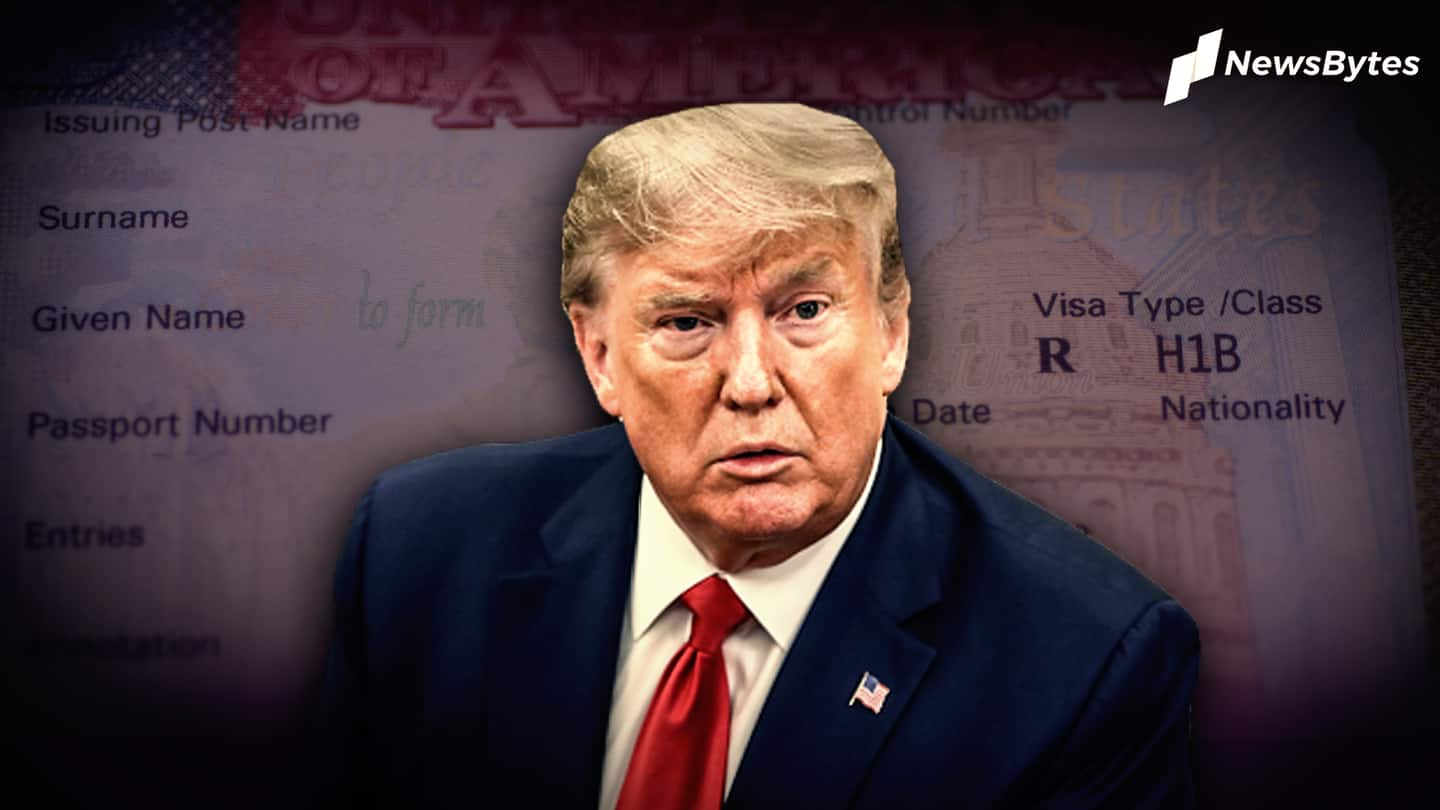
New stringent H-1B visa rules likely to affect Indian workers
What's the story
The US government, led by President Donald Trump, announced significant changes in the H-1B visa program, heavily relied on by tech companies to hire skilled foreign workers.
With an aim to help the American task force, the US administration said companies will have to pay more to the foreigners.
In a move that could affect Indians the most, the eligibility criterion was also narrowed.
Context
An overhaul was part of Trump's plan since 2017
The Trump administration was looking to overhaul the rules of the non-immigrant visa, which helps Indians and Chinese land jobs that demand theoretical expertise in the US, since 2017.
As the President faces a re-election bid in less than a month, he needs to fix a broken economy. With unemployment rising in the coronavirus-era, he struck rules that made foreign hiring seamless.
Wage
Labor Department revision forces employers to increase foreigners' salaries
According to the Labor Department's wage-scale revision, entry-level workers will now get 45th percentile of their profession's salary, up from the 17th percentile; and high-skilled workers would have to be paid 95th percentile, an increase from 67th percentile.
Since the rules will be enforced this week, those already having H-1B visas might not be up for renewal, unless employers match the criteria.
Qualification
Rules pertaining to qualification were also changed
Meanwhile, the Department of Homeland Security has made the rules for qualification more stringent.
Unlike earlier, when a college degree or equivalent amount of work experience was enough for jobs, foreign workers won't be hired if their profession and degree don't match.
Thus, a person working in software can't be hired by companies if they have a degree in electrical engineering.
Healthcare
Rural healthcare, dependent on foreign physicians, would be adversely affected
Besides the tech sector, healthcare would also be adversely affected due to these rules.
Rural hospitals, that are heavily dependent on physicians from abroad since American doctors prefer working in urban areas, would possibly face a staff-crunch.
Earlier, if a clinic in Northeastern Pennsylvania, paid $120,000-130,000 to a doctor, it would now have to shed somewhere between $195,000 and $200,000.
Statement
"America's immigration laws should protect American workers"
Revealing how powerful the new rules are, Ken Cuccinelli, a senior official at Homeland Security, said that one-third of H-1B visa applications would be rejected.
Patrick Pizzella, from the Labor Department, claimed Americans suffer because foreign workers do the same job for less money.
"The result is US workers are being ousted from good-paying, middle-class jobs and being replaced by foreign workers," he said.
Reaction
These rules will only hurt American companies: TechNet
However, business groups and immigrant advocates slammed the rules, saying Trump was working toward fixing a non-existent problem.
"Changing the requirements around H-1B and other work visas will only hurt American companies that depend on high-skilled workers who fill critical positions while we work to grow our domestic [science, technology, engineering, and math] pipeline," said the CEO of a lobbying group TechNet.
Ban
Trump had also banned various visas earlier this year
In June, Trump had suspended a plethora of work visas until 2020-end, saying that he wants to favor Americans.
This order prompted pleas by various visa-advocacy groups.
Last week, ruling that Trump overstepped his boundaries, a federal judge said, "There must be some measure of constraint on presidential authority in the domestic sphere in order not to render the executive an entirely monarchical power."